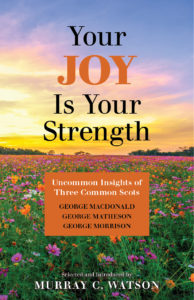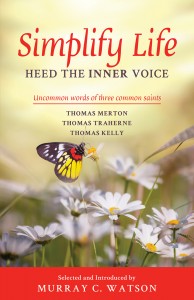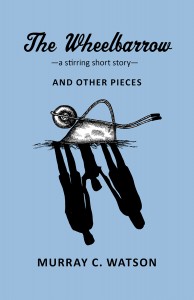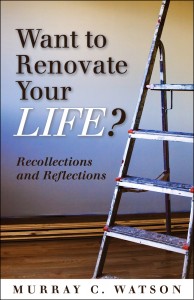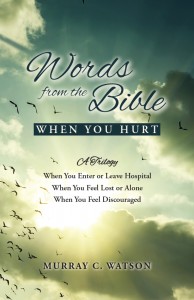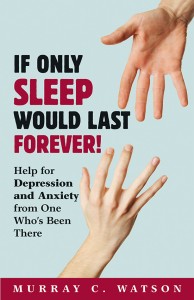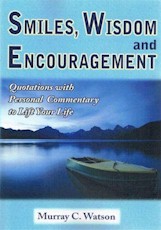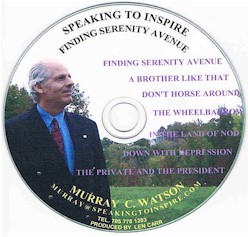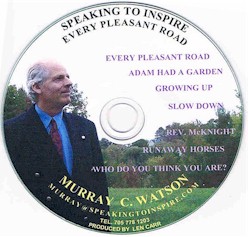Pills, Skills, or Will?
Someone said to me, “How did you get over your depression?” Looking back 17 years, after researching and writing a book on the subject, I recalled sleeping in till afternoon, unable to concentrate, sad, worried, physically underactive, mentally overactive including questioning the value of staying alive — and always my attention on myself. And I couldn’t help recalling, too, the difficulties I experienced after four strong drugs were prescribed in the psychiatric ward of that Toronto hospital. In fact, my short-term memory damage affects me still.
What I told my friend took about two minutes, but I thought I should give you a slightly longer version, starting with how it’s treated.
Clinical or major depression is generally treated in one of two ways — antidepressant pills or antidepressant skills. (I’m not touching here on bipolar or manic depression, nor am I touching on ECT — Electro Convulsive Therapy — commonly known as shock treatment). Commonly prescribed antidepressant pills include those such as Prozac and Paxil. Antidepressant skills are generally developed through Talk Therapy — usually CBT (Cognitive Behaviour Therapy).
Antidepressant pills. Why are antidepressant drugs like Prozac and Paxil prescribed and how do they work? It is assumed there is a physical problem — effectively brain-disease. That there is a chemical imbalance, specifically that the level of serotonin is too low. That the lower mood is a consequence of this lower level of serotonin. When you’re depressed, some of this chemical has gone awol, and there isn’t enough available to enable you to access your happy feelings. The antidepressant drugs work by raising the level of serotonin. Raise your serotonin, raise your mood.
Antidepressant skills. Why are antidepressant skills recommended and how do they work? CBT (Cognitive Behaviour Therapy) assumes there is a cognitive problem in the mind — effectively incorrect thinking. That the depressed mood is a consequence of this improper thought pattern. Change your mind, change your mood. The great psychologist William James said, “The greatest discovery of my generation is that man can change his life by changing his attitude.” By changing his way of thinking.
Antidepressant will. Why is an antidepressant will, or relationship lifestyle, recommended and how does it work? It is assumed by this spiritual-malaise model that the problem lies in one’s interactions with others — effectively self-centeredness. That the lower mood is the consequence of self-preoccupation. It prescribes getting your eyes off yourself and onto the needs of others. It would say that it is not the condition of my brain or how I think (although these are important) that is central to my peace of mind, but what I do. Life has a bounce-back. What I do for others (good or bad), I effectively do for myself. What I do for myself alone, I do for nobody.
In the mystic tradition of Islam, Rumi says:
In that moment you are drunk on yourself,
You are the prey of a mosquito…
You lock yourself away in cloud after cloud of grief;
And in that moment you leap free of yourself,
The moon catches you and hugs you in its arms.
We may know the story of Job in the Torah of Judaism, how he was badly depressed, having lost his business, his family and his health. We may be familiar with the expression “the patience of Job.” But do we know how he was cured of his depression — how he raised his serotonin level? ‘And God turned the captivity of Job when he prayed for his friends.’ When he got his eyes off himself and onto the needs of others.
This shows up in the New Testament also. ‘Confess your faults to one another and pray for one another, that you may be healed.’ When we confess other people’s sins and put the greater attention on ourselves, we get the cart before the horse. But healing requires we do it the other way around — clear our own deck of guilt and get our eyes off ourselves and onto the needs of others.
To take one example (otherwise this will be not a blog, but a book!), when I was 21 and in my first year of teaching in the little village of Marlbank, I recommended a student be expelled, and I exaggerated his behaviour — effectively lying — in court. Forty years later while reading a novel by George MacDonald, I realized I had to deal with it. But how? When I finally asked Billy for his forgiveness, which he readily granted, the black cloud I used to see when I woke in the morning, lifted.
Where the physical brain-disease model of major or clinical depression prescribes antidepressant pills, and the cognitive-illness view prescribes the antidepressant skills of correct thinking, this relationship lifestyle model prescribes getting one’s eyes off oneself and onto the needs of others after clearing the deck of guilt. For guilt, our stongest emotion, often dresses up as depression and anxiety. You can take a pailful of Paxil, but you won’t budge a depression based on guilt.
Clearing the deck of guilt is a kind of qualifying condition. Many, in removing their guilt, have thereby removed their depression. Whereas the antidepressant pills path assumes we’re a body, and the antidepressant skills path assumes that beyond the body there’s a mind, what I’m calling the antidepressant will or lifestyle path assumes that beyond the mind there is something else (commonly called spirit). You probably won’t find this ‘antidepressant will’ (or relationship lifestyle) label in medical literature. It’s a tag I came up with after ‘seeing’ the concept in my study of spirituality underlying and common to the various religions. What drove me to that study was finding myself a victim of collateral damage after being prescribed antidepressant and related pills, and finding I needed more than the correct thinking skills offered by CBT.
What I am calling the antidepressant will or lifestyle finds no fault with Talk Therapy’s correct thinking model. It simply goes farther. And neither the skills approach nor the will/relationship lifestyle approach results in negative side-effects.
What are the advantages and disadvantages of each method? For the doctor, the advantage of pills is they’re easy. Simply write a prescription. And make some follow-up appointments. And as one doctor said to me, “You get the parents off your back because at least you did something.” There’s never a shortage of pills, while there may be a shortage of money, or available professionals, for Talk Therapy. “How long,” I once asked a pharmacist, “must one must stay on an antidepressant?” His reply? “Well, forever.” And this is true, because if, for any reason, you stop taking the drug, and it’s out of your system, you’re right back where you started! Unless, in the meantime, you’ve put in place some antidepressant skills or an antidepressant will (lifestyle). I can’t speak to the disadvantages of the skills and the will/lifestyle models as I believe there are none. No one ever got rich selling Talk Therapy. In my own case, at the end of a 25-year marriage I went into hospital with depression. They put me on Prozac, Ativan, Elavil, and Mogodan. I came out with depression, slow plumbing, no sleep for three weeks, short-term brain memory damage and no sex drive. Now everything is back up again — except my short-term brain memory damage. That’s why I have to keep my notes handy during my speeches.
Is there a connection between depression and suicide? In Canada, 90% of teenagers who committed suicide suffered from depression! The Health Board in the UK has recommended SSRI antidepressants not be prescribed to anyone younger than twenty-five. Why? In this age group, these drugs actually increase thoughts of suicide. As an adult driving to work one morning, I nearly drove over the edge of a bridge. And I feel very sorry for all those who didn’t stop before they went over the edge — and for those they left behind.
Where does this illness reside? Some see depression and anxiety as a brain disease, some as a thinking disease, I see it as a relationship disease. And the relationship disease has repercussions in our thinking pattern and on chemical levels in the brain. I now believe this illness is basically self-preoccupation. One doctor said it is not caused by a shortage of Prozac. In my view, it is caused by an excess of self-attention. In my self-pity, I can lock and bar the door. But the bar that keep others out, keeps me in — in the dark dungeon of despair. And until I open the door to others (which is an inside job), I’m my own jailer.
If serotonin were seen to be the definitive marker for this illness, it would make sense that getting a blood test to confirm it would be easy if not mandatory. Yet, when I asked for one, my doctor said he’d never heard of it before. And it was hell to pay to get the lab to test for it when I was able to persuade my doctor to give me a requisition. And even if serotonin were always low in a depressed individual (which it probably is) does not prove that is the cause of the illness. It might be a symptom. The real question might be, Does the low level of serotonin cause the low mood? Or, does the low mood cause the low level of serotonin?
Trade in your self-pity for pity for others. In the place of depression, you’ll pick up peace of mind. For peace of mind and selfishness do not hold hands. Not only do they not go together, they’ve never met. But if the crux of depression is self-preoccupation, how do I remove it? When you take your car to get lubricated, do you worry about getting rid of the old grease? No. The ejection of the old grease results from the injection of the new. So with depression. Don’t focus on getting rid of your self-attention. As you put your eyes on the needs of others, your attention on yourself lessens automatically.
Is there a slogan that will help keep me on track? There is. Just as there’s a four-word motto which works every time for losing weight — Eat less, exercise more — so there’s an equally effective mantra for losing depression. Help others, help yourself.
Murray acknowledges this blog omits many important aspects of depression. He admits you get a better picture of this widespread illness after reading the book and hearing the speech. He also says, “My purpose is to share smiles, wisdom and encouragement. If you would like me to give a speech to your school or other group, please contact me.”


